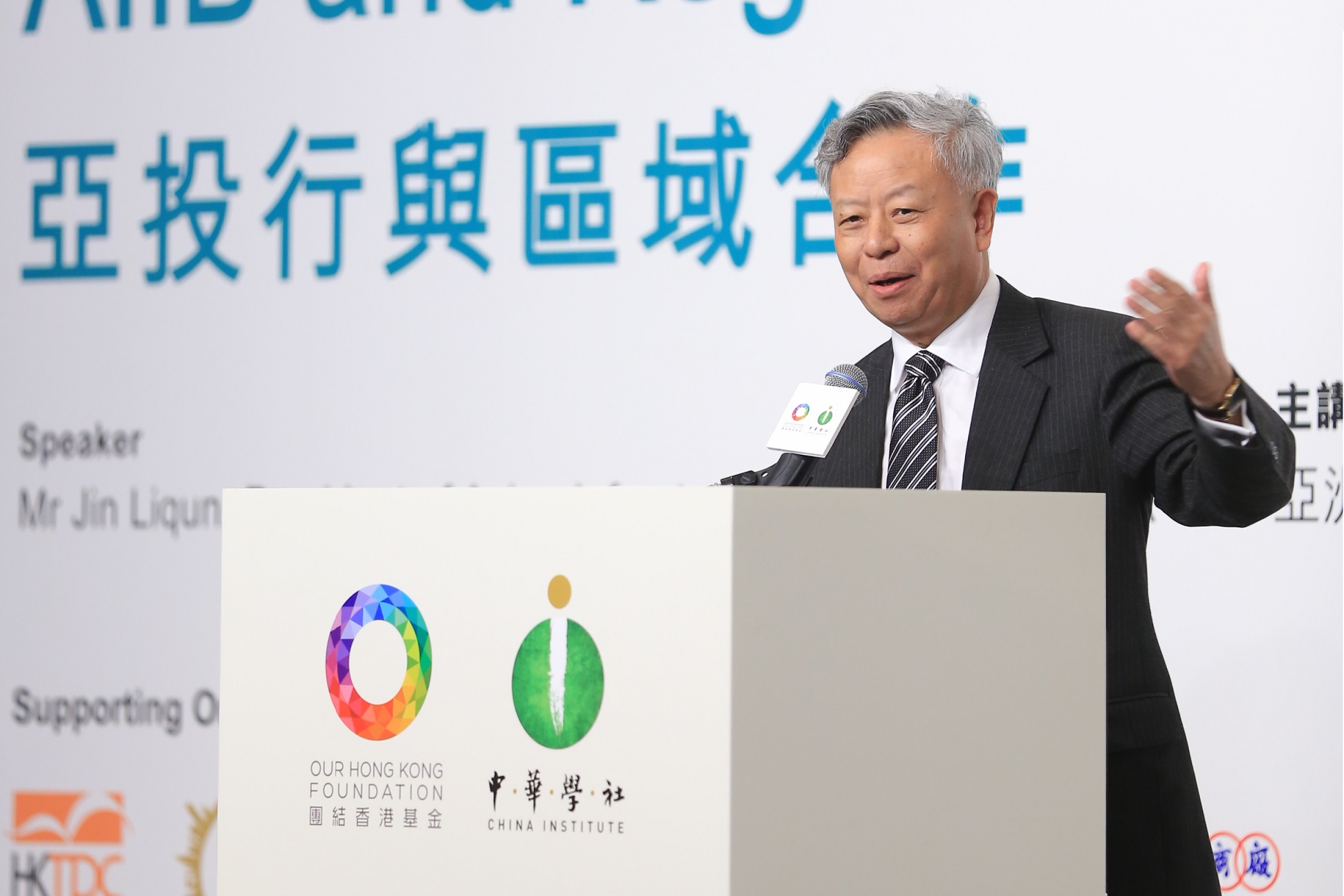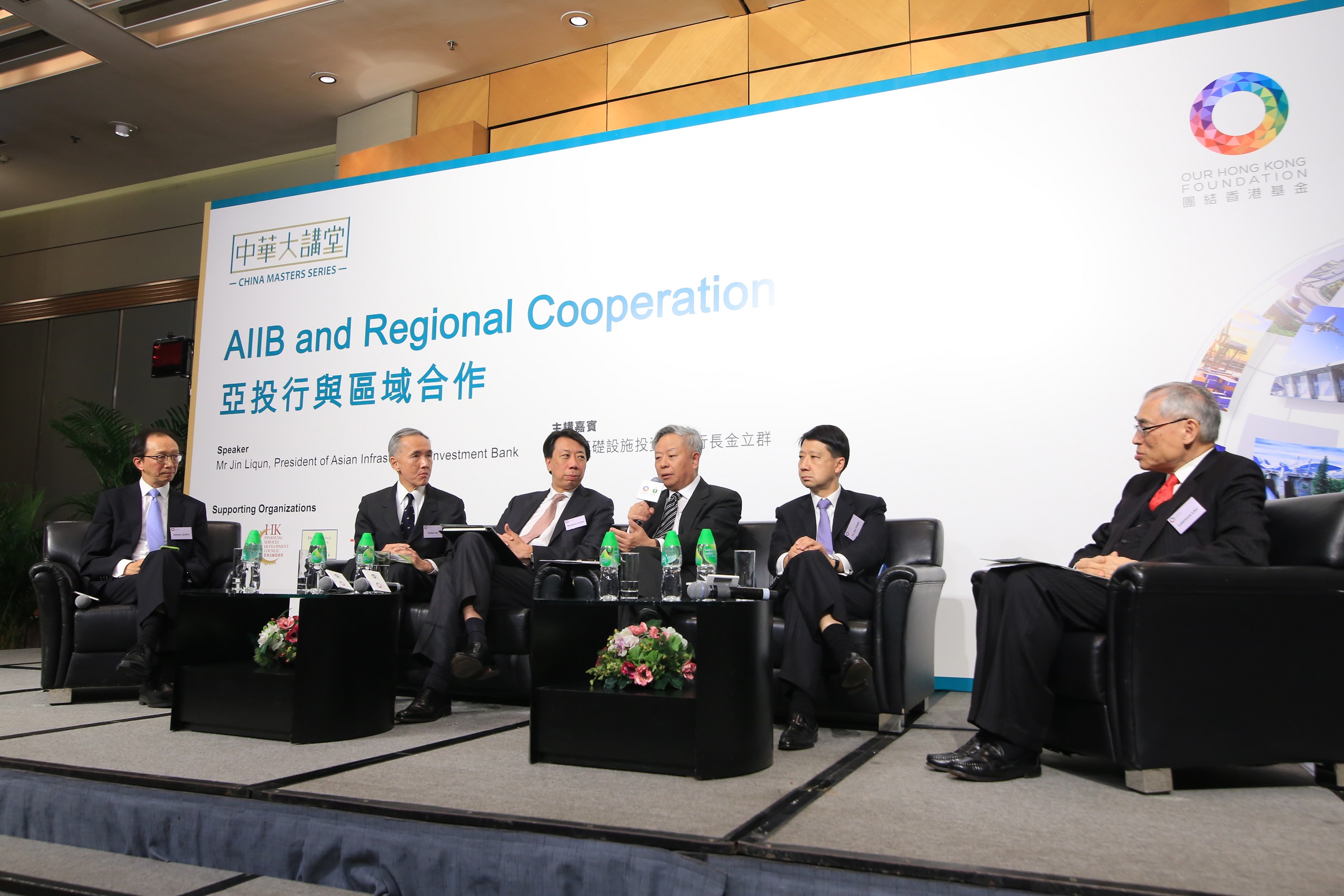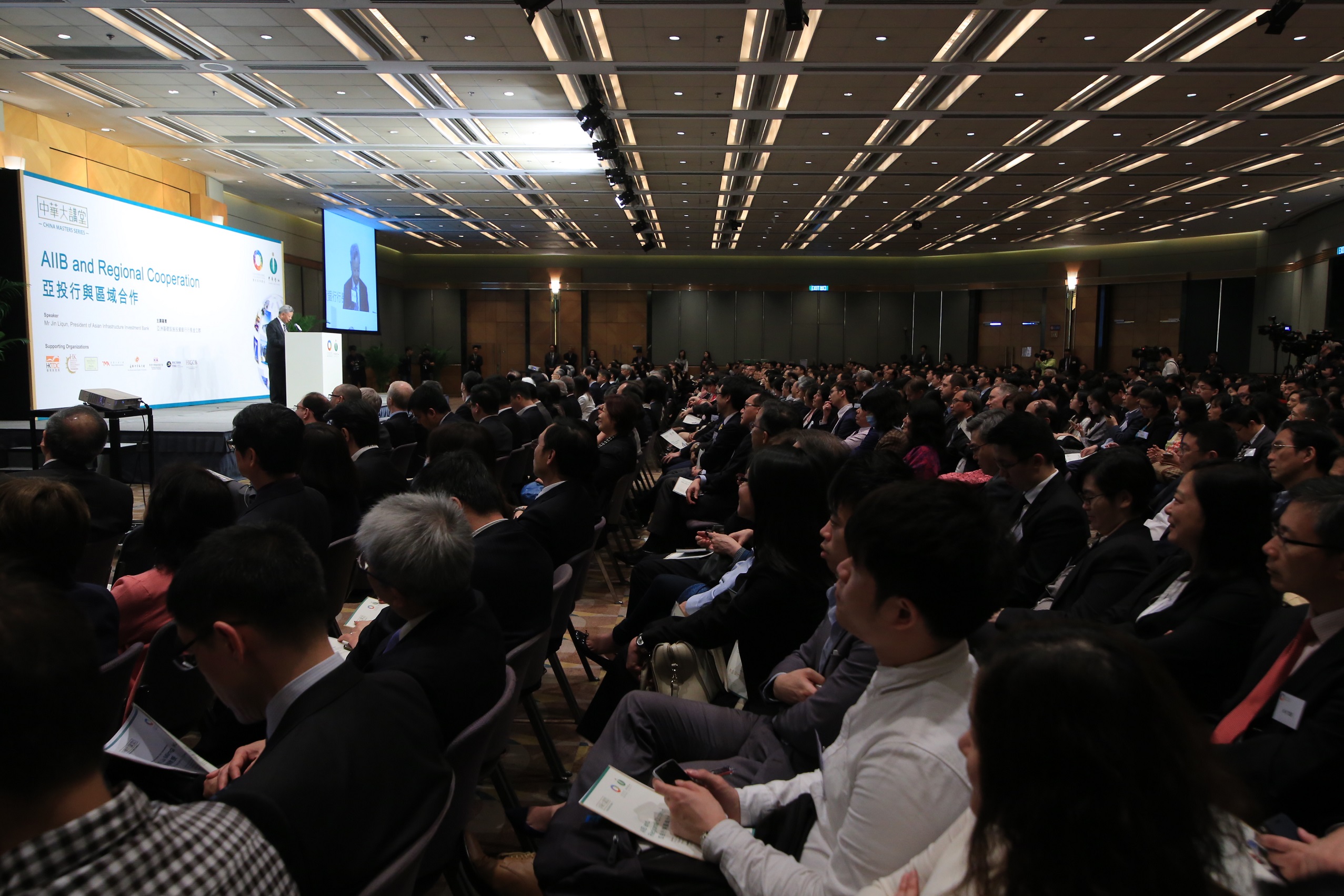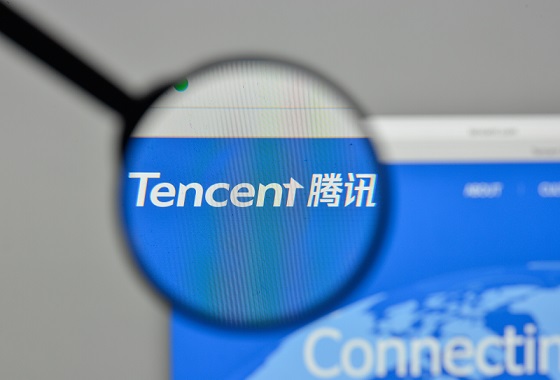Hong Kong’s role in AIIB helps build regional infrastructures, President Jin says in talk on bank’s future
(Hong Kong, 7 April 2016) Mr Jin Liqun, President of Asian Infrastructure Investment Bank (AIIB), gave a talk at Hong Kong Convention and Exhibition Centre this afternoon at the invitation of China Institute, Our Hong Kong Foundation (OHKF). In his talk entitled “AIIB and Regional Cooperation”, Mr Jin shared with the audience the Bank’s plan for helping the growth of infrastructures across Asia.
The talk is part of China Master Series regularly held by OHKF. Among the audience of over 600 that packed the auditorium were more than 40 diplomats from Consulates General in Hong Kong, numerous personages from local and international banks, leaders of business sectors, and university presidents and professors.
Also invited to the talk were leaders of various youth groups and students from local universities and colleges.
In his talk, Mr Jin pointed out that Hong Kong was a good role model in the rule of law and corporate governance and, plus its excellent legal and arbitration services, would have a big role to play. “We have a special seat for Hong Kong, and will solve its membership as soon as possible,” he said.

Joining Mr Jin in a panel discussion following the talk were five distinguished guests from fields of finance, business, and higher education, namely:
Mr Antony Leung, former Financial Secretary of the HKSAR Government and Group Chief Executive Officer, Nan Fung Group;
Professor Lawrence Lau, Ralph and Claire Landau Professor of Economics of the Institute of Global Economics and Finance, Chinese University of Hong Kong;
Mr. Robert Ng, Chairman of Sino Group;
Mr. Yiu-kai Pang, Chairman of Hong Kong General Chamber of Commerce and Chief Executive of Hong Kong Land Holdings Limited; and
Mr. Benjamin Hung, Regional Chief Executive Officer of Greater China & North Asia of Standard Chartered Bank (Hong Kong) Limited.
They discussed the building of AIIB-Hong Kong ties and the territory’s role in their joint efforts.
Mr Antony Leung pointed out that the launch of AIIB was particularly meaningful for the development of the Region. Hong Kong’s economic achievements had resulted from the regional cooperations in the past, he went on, and with the capital and corporations of China going global, the territory should think more about how it would support AIIB’s efforts so as to seize the opportunities. Hong Kong would be able to play a role going far beyond that of a connector, he concluded.
“We are honoured to have invited Mr Jin, who was appointed President of AIIB three months ago, to come and give this talk,” said Mrs Eva Cheng, Executive Director of OHKF. “We are sure the talk will help various sectors in Hong Kong and the international community better understand the goals and objectives of AIIB, so that they will see how they can join the Bank’s efforts, thus working together to boost the growth across the Asian region. We are convinced that Hong Kong will definitely benefit from AIIB’s development in the Region.”

|
The idea of setting up of AIIB was proposed in October 2013 by Mr Xi Jinping, President of China, its chief aim being to boost the connectivity and integration of infrastructure and economic growth across Asia, and to provide capital for developing countries in the region to fund their respective infrastructure projects. The preparation for AIIB, once started, received enthusiastic response from around the world. In October 2014, the first batch of 22 countries in the Region signed in Beijing a memorandum on setting up AIIB. In March 2015, the number of countries interested in becoming Founding Members of AIIB increased to 57, from Asia, Oceania, Europe, Africa, and Latin America, even including developed countries such as the United Kingdom, Germany and France. Besides the 57 Founding Members, over 30 other countries have expressed their wish to become members of AIIB. Headquartered in Beijing, and with a subscribed capital of US $100 billion, AIIB will focus on investing in the growth of infrastructure and other productive sectors, with the building of environmental conservation projects on its future plan. It is estimated that in the next decade, the need for investments in infrastructure across Asia will amount to US$10,000 billion, including those devoted to fields of power generation, highways, railways, ports, transport, telecommunication, and agriculture. Given the AIIB’s prospect and plans, and with its advantage of “One Country, Two Systems”, Hong Kong can leverage its sophisticated financial and professional services and its regional network to make the best possible use of the enormous opportunities ahead. |
|

About the Speaker Mr Jin Liqun, currently President of Asian Infrastructure Investment Bank, was Vice President, and then Ranking Vice President, of the Asian Development Bank (ADB), in charge of programmes for South, Central and West Asia, and private sector operations. From 2003 to 2008, he was Vice President of ADB. From 2008 to 2013, he served as Chairman of the Supervisory Board, China Investment Corporation (CIC). He joined the Ministry of Finance in 1980, where he served as Director General and Assistant Minister, and became Vice Minister in 1998. He was also a Member of the State Monetary Policy Committee. Earlier in his career, Mr Jin served as Alternative Executive Director for China at the World Bank and at the Global Environment Facility as well as Alternative Governor for China at the ADB.c Mr Jin holds an M. A. degree in English Literature from Beijing Institute of Foreign Languages (now Beijing Foreign Studies University). He was also a Hubert Humphrey Fellow in the Economics Graduate Program at Boston University from 1987 to 1988. |


